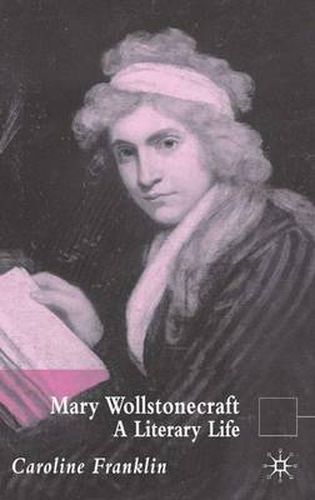Readings Newsletter
Become a Readings Member to make your shopping experience even easier.
Sign in or sign up for free!
You’re not far away from qualifying for FREE standard shipping within Australia
You’ve qualified for FREE standard shipping within Australia
The cart is loading…






This title is printed to order. This book may have been self-published. If so, we cannot guarantee the quality of the content. In the main most books will have gone through the editing process however some may not. We therefore suggest that you be aware of this before ordering this book. If in doubt check either the author or publisher’s details as we are unable to accept any returns unless they are faulty. Please contact us if you have any questions.
Mary Wollstonecraft was an extraordinary individual, yet her literary life exemplifies how many women of that time adopted print culture to bring about change. This study argues that protestant society had traditionally sanctioned women’s role in spreading literacy, but this became politicized in the 1790s. Wollstonecraft’s literary vocation was shaped by the high expectations of the power of print to educate and reform individuals and society, in the radical circles of the Unitarian publisher Joseph Johnson, and the Girondins in revolutionary Paris.
$9.00 standard shipping within Australia
FREE standard shipping within Australia for orders over $100.00
Express & International shipping calculated at checkout
This title is printed to order. This book may have been self-published. If so, we cannot guarantee the quality of the content. In the main most books will have gone through the editing process however some may not. We therefore suggest that you be aware of this before ordering this book. If in doubt check either the author or publisher’s details as we are unable to accept any returns unless they are faulty. Please contact us if you have any questions.
Mary Wollstonecraft was an extraordinary individual, yet her literary life exemplifies how many women of that time adopted print culture to bring about change. This study argues that protestant society had traditionally sanctioned women’s role in spreading literacy, but this became politicized in the 1790s. Wollstonecraft’s literary vocation was shaped by the high expectations of the power of print to educate and reform individuals and society, in the radical circles of the Unitarian publisher Joseph Johnson, and the Girondins in revolutionary Paris.